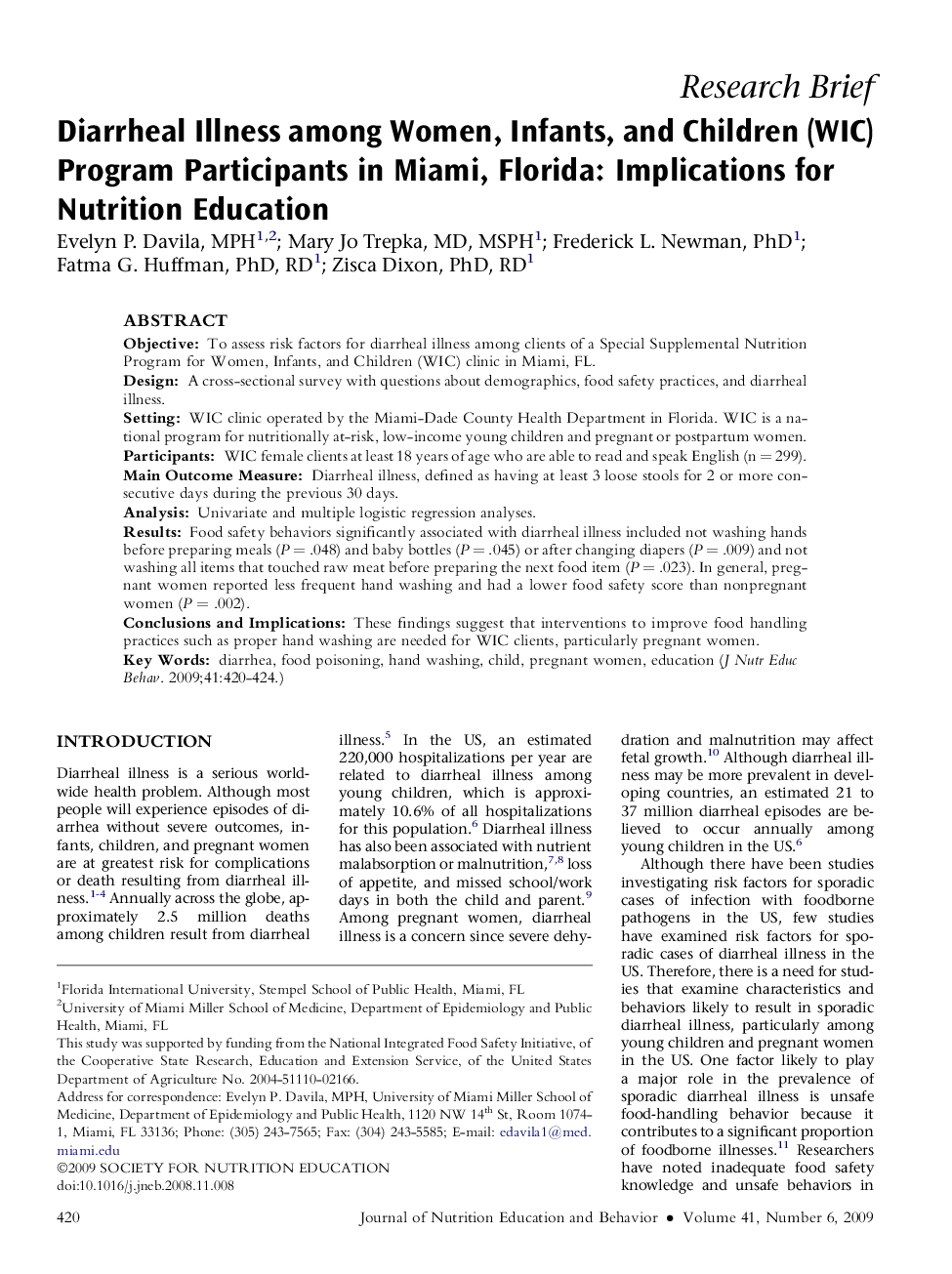| Article ID | Journal | Published Year | Pages | File Type |
|---|---|---|---|---|
| 363093 | Journal of Nutrition Education and Behavior | 2009 | 5 Pages |
ObjectiveTo assess risk factors for diarrheal illness among clients of a Special Supplemental Nutrition Program for Women, Infants, and Children (WIC) clinic in Miami, FL.DesignA cross-sectional survey with questions about demographics, food safety practices, and diarrheal illness.SettingWIC clinic operated by the Miami-Dade County Health Department in Florida. WIC is a national program for nutritionally at-risk, low-income young children and pregnant or postpartum women.ParticipantsWIC female clients at least 18 years of age who are able to read and speak English (n = 299).Main Outcome MeasureDiarrheal illness, defined as having at least 3 loose stools for 2 or more consecutive days during the previous 30 days.AnalysisUnivariate and multiple logistic regression analyses.ResultsFood safety behaviors significantly associated with diarrheal illness included not washing hands before preparing meals (P = .048) and baby bottles (P = .045) or after changing diapers (P = .009) and not washing all items that touched raw meat before preparing the next food item (P = .023). In general, pregnant women reported less frequent hand washing and had a lower food safety score than nonpregnant women (P = .002).Conclusions and ImplicationsThese findings suggest that interventions to improve food handling practices such as proper hand washing are needed for WIC clients, particularly pregnant women.
